More universities using artificial intelligence in class but some students have mixed feelings
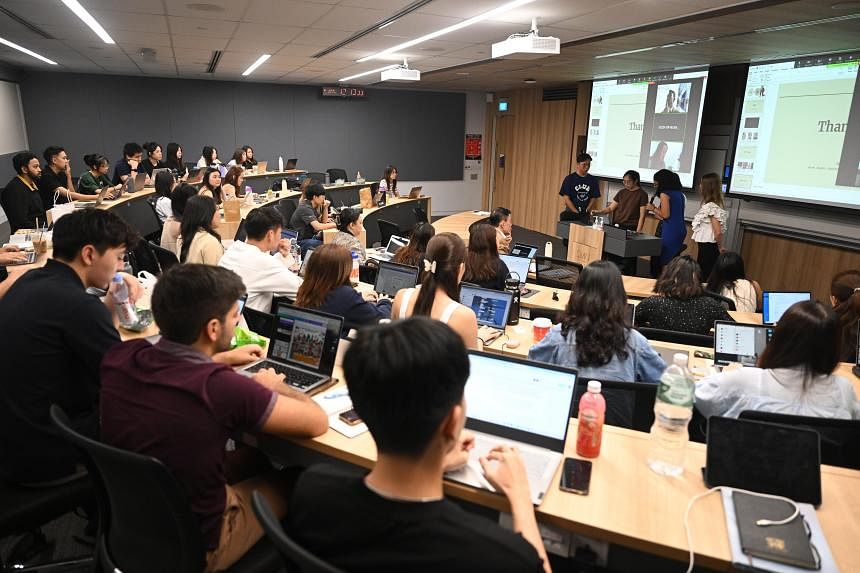

SINGAPORE - When Singapore Management University (SMU) final-year student Shannon Wong, 24, and her team created a video for a communications project, they did not hire a single actor, but instead turned to artificial intelligence (AI).
The AI tool they used helped them create a video to promote a K-pop platform managed by a South Korean firm – the “client” for the project – featuring a lifelike representation of pop star Karina from popular Korean girl group Aespa.
Representatives from the firm, who were watching the group’s presentation online from South Korea, said they were impressed with how realistic the AI-generated Karina looked and sounded, when The Straits Times sat in during a classroom session in early April.
They added that the AI-generated character’s presentation skills and authentic demeanour in the video were plus points in the team’s work.
Said Ms Wong: “The AI tool allowed us to clone Karina’s voice, adding another layer of authenticity to our creation and allowing us to craft a compelling video that resonated with audiences on a deeper level.”
The project was part of a course requiring students to come up with a marketing video for clients drawn from the business world.
The AI project did not flout intellectual property rules because it was used in a non-commercial classroom setting, said SMU associate professor of law Saw Cheng Lim.

By signing up, I accept SPH Media's Terms & Conditions and Privacy Policy as amended from time to time.
SMU third-year student Beckham Lim, 24, who is in the same course as Ms Wong, said AI tools can add an extra dimension in formulating winning ad campaigns.
He said: “The marketing landscape is becoming increasingly saturated and cluttered... To craft winning strategies, marketers will need to be more innovative. So, I am definitely a proponent of using AI, especially in marketing.”
The use of AI in higher education has been gaining ground in recent years and is slowly reshaping the way students learn, create and evaluate knowledge.
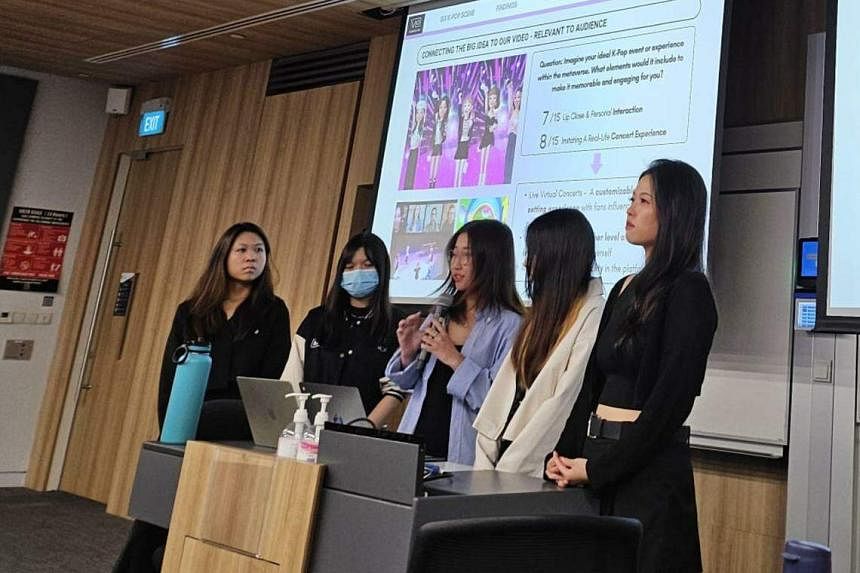
Public universities in Singapore, including SMU, the National University of Singapore (NUS) and Nanyang Technological University (NTU), have embraced AI technologies to enhance teaching methodologies, foster innovation and address the diverse learning needs of students.
The integration of AI into coursework at SMU has yielded tangible benefits, said communication management professor Mark Chong. He added that his students have become “far more efficient and productive in creating preliminary ideas for their video script”.
At NUS, students are taught AI skills that may come in handy in their chosen disciplines.
Associate Professor Melvin Yap, associate provost of education and technology at NUS, said: “Our experience with leveraging AI has been very positive. It has enabled our educators to customise better instructional approaches for more effective learning, and cater to students’ diverse learning styles.”
NUS Master of Computing student Ng Shi Kang, who did not give his age, said universities need to keep pace with developments in the real world. “Keeping up with new technologies and exposing students to the best practices and latest developments in research will allow us to gain a deeper understanding of how algorithms and other concepts are applied in solving real-world problems.”
NTU deputy provost for education Tan Ooi Kiang said the university adopts a cautious approach to AI, prioritising personalised learning while acknowledging the limitations of AI in assessment.
Professor Tan said: “For instance, large language models have been known to generate incorrect or misleading results, so the university discourages the use of technology for auto-grading.”
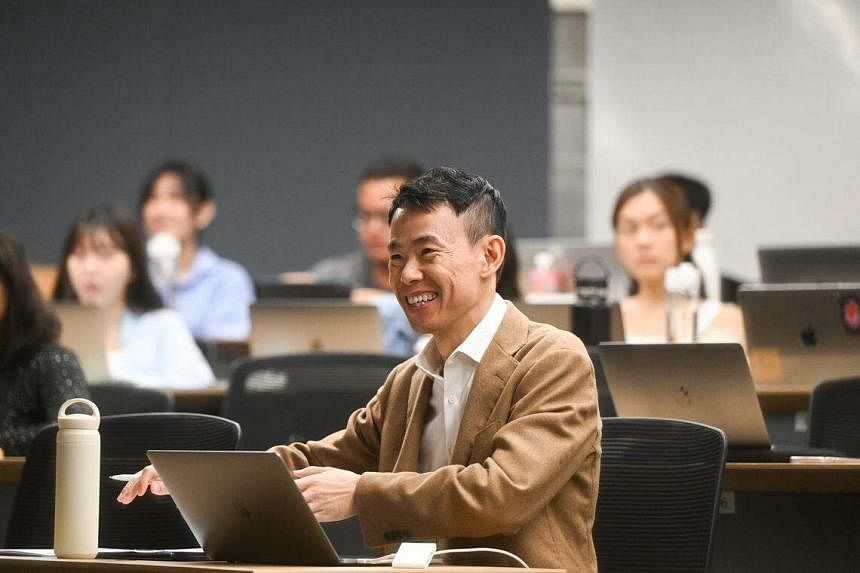
NTU College of Computing and Data Science student Yajat Gulati, 19, said AI has the potential to be an educational tool, but added that he has concerns about its misuse.
He said: “For someone who is maybe not so interested in the lesson, AI can become a tempting way to cheat, to get out of doing the work.”
SMU second-year undergraduate Aviel Lim, 20, said the learning process itself is key.
She said: “I do not think that AI use should be incorporated in all university courses. I think it is through the learning process that we get to practise our skills and develop them further.
“What is the point of paying so much money just to use AI tools? Why then even go to university in the first place?”
Enjoying ST's content? Become a subscriber to access premium articles
Unlock subscriber-only benefits
- All subscriber-only content on ST app and straitstimes.com
- Easy access any time via ST app on 1 mobile device
- Other subscriber-exclusive perks like e-paper access with a 2-week archive and more!
Join ST's WhatsApp Channel and get the latest news and must-reads.
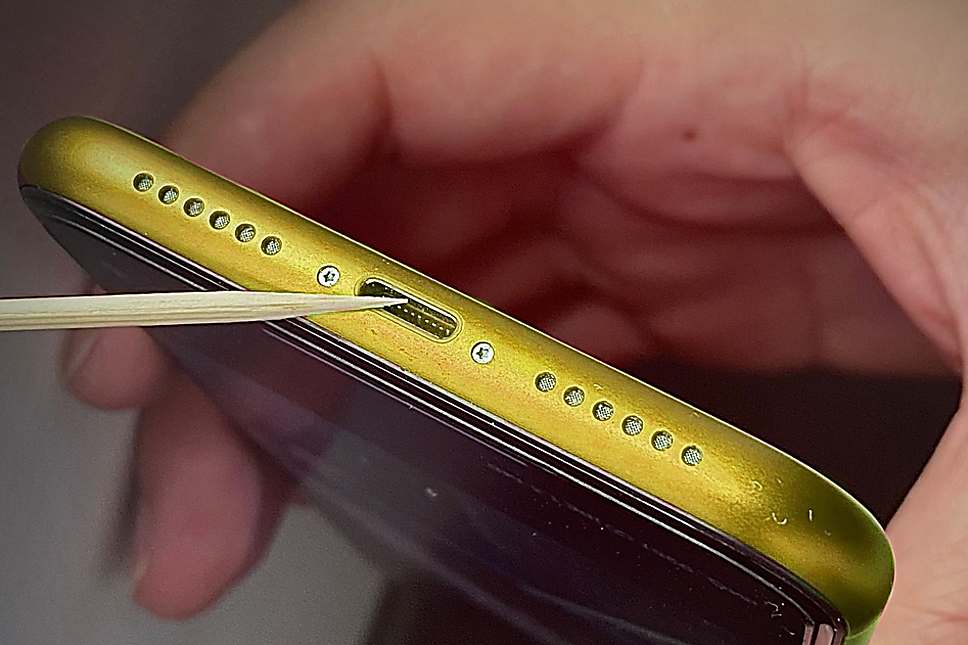

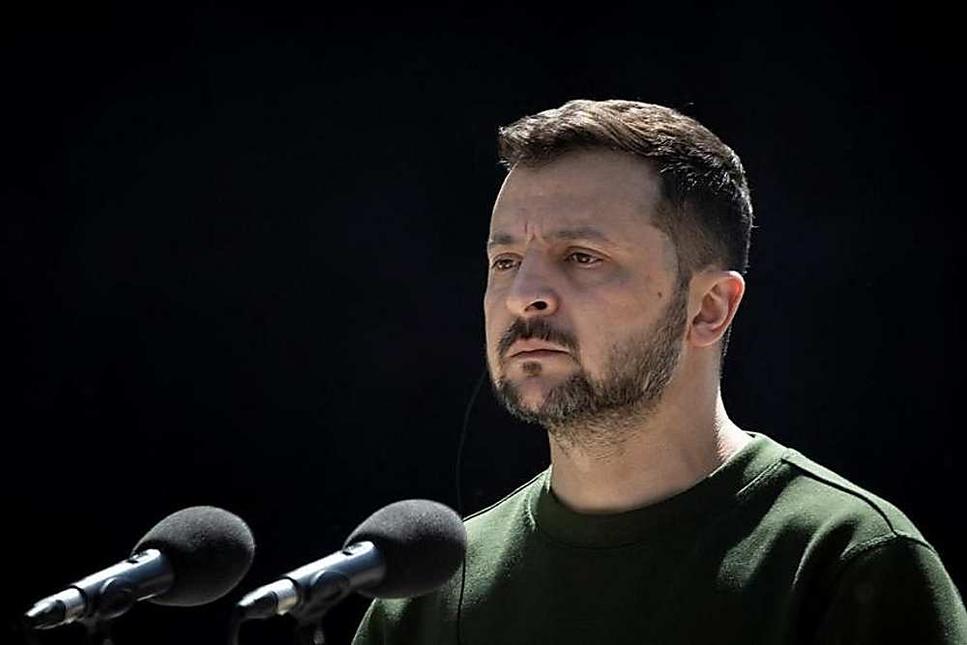






No comments:
Post a Comment